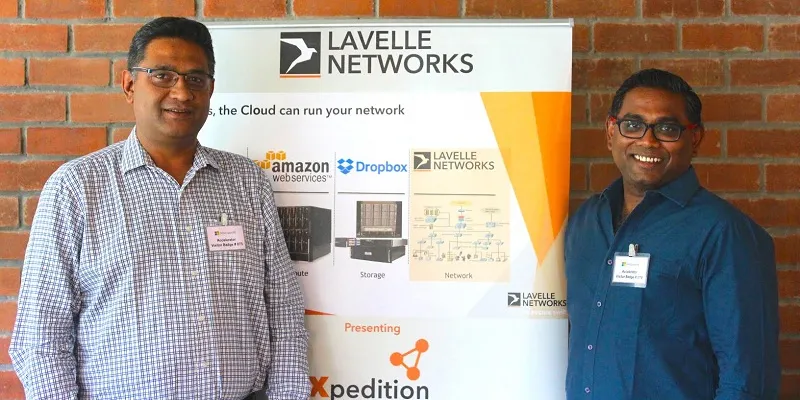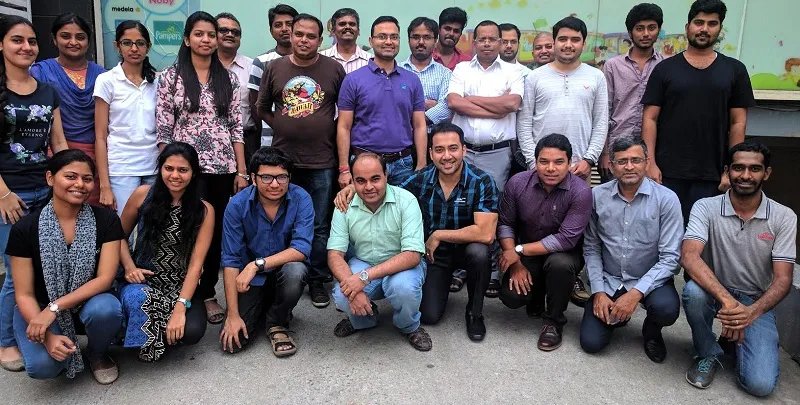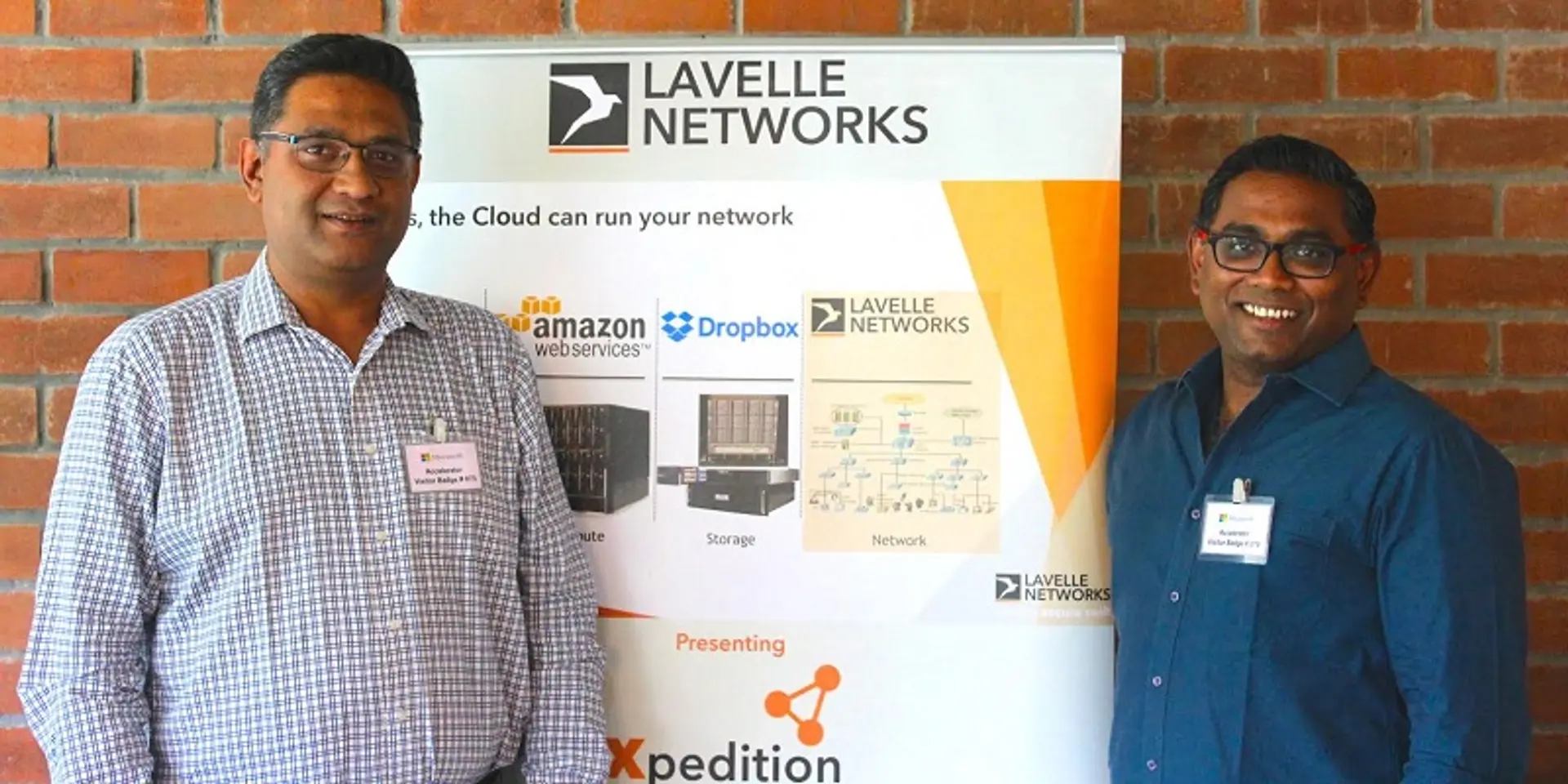Bangalore's Lavelle Networks turbo-charges legacy lines with the cloud
Every corporate is looking for software that can use the cloud to connect with their global applications, regardless of the private network in each office.
Imagine you are a global automobile manufacturer with offices across the world, with each serviced by private networks. Now, if the manufacturing team in India wants to speak to the sales team in South Africa, it can only do so over private lines between the two offices. And these lines cost a lot to set up. But what if there was a box whose software routed your communications into the cloud and connected both teams on a secure network without any latency? Such a technology would be a winner, wouldn’t it?
While the likes of Cisco and Juniper are looking at commercialising this technology, a startup in Bengaluru has built and scaled up this technology with 10 in India and two globally. Armed with half a million dollars in capital, the company hopes to go global in sales.

It all began at a coffee shop on Lavelle Road in Bengaluru when Karthik Madhava and Shyamal Kumar worked for a technology company. They realised that there was no new-age networking company that used the cloud and software to deliver high-speed enterprise networking. Says Shyamal,
“We wanted to build a technology and product company with the unique identity of Bangalore.”
Just as Cisco and Juniper identify themselves with innovation in the Bay Area–Cisco is from San Francisco, while Juniper was named after juniper trees that are found all over Silicon Valley–Lavelle Networks pays homage to Bangalore’s innovativeness. The technology it has built creates multiple points of presence (PoP) by using public cloud networks across the world, and makes enterprise communication faster and cheaper.
Going back to the example of a automobile company, when the sales team logs into a CRM application that needs to be reported to the Mumbai unit, both teams will be connected by PoP in public cloud networks in South Africa and Mumbai. The entire communication is managed by Lavelle without any disruption. If one PoP fails, it can always connect to another in Bengaluru or in Namibia to keep the conversation going.
The beginning
Shyamal is a 1999 BITS Pilani graduate, while Karthik graduated from University of Mysore in 2000. The two dealt in networking technology for over 15 years before the entrepreneurial bug bit them in 2015. When enlightenment struck them that day in the coffee shop on Lavelle Road, famed for its suave restaurants and British heritage, the duo scribbled the idea on a piece of paper and soon made a trip to the Bay Area in the US to pitch their idea to prospective clients. A person they knew there put them through to global networking company ShoreTel, in Sunnyvale, California, which was looking for a solution that could enable voice over the cloud network for its enterprise customers.
The Shoretel team liked the idea of using PoP to deliver seamless communication, and gave them an advance. However, it wanted Karthik and Shyamal to deliver the project in six months, which was quite a challenge. “We immediately roped in a team and began work in Bengaluru. We worked long hours on the brief provided and came up with the solution in under three months,” says Karthik (37). The network company was stunned at the speed at which the solution was built, and began to test out the product. The solution worked right off the bat and ShoreTel was so impressed that it wanted an equity investment in Lavelle. The founder obliged and received a $1-million investment to build the technology further.
“Its been a lot of hard work and the premise of having a global network solutions provider is coming to fruition,” says Karthik.
The business model
Like all cloud-based businesses, this solution works on a pay-as-you-go basis, and it becomes an operational cost on the income statement. This frees up cash for an organisation. The company also charges an annual maintenance cost from its clients because there is a box sitting in all the operation centres of the client. The network boxes are sourced from China and the IP of Lavelle is built on top of them. Even Aryaka Networks, which has raised more than $120 million, is pushing big on the PoP instances or using the cloud as network.
The cost of setting up a Multiprotocol Label Switching (MPLS) line from office to office runs into millions. Here the cost of an MPLS line is Rs 4,000 per mbps. In an era when cash needs to be allocated resourcefully the Internet or public cloud networks offer a great avenue to bring costs down. If you use the PoP instance method then an organisation has to spend less than Rs 150 per mbps to deliver content/applications and communicate over the Internet.
“It is great to see core technology businesses emerge out of India, the business is scalable because the technology benefits corporates on multiple networks and multiple offices,” says Naganand Doraswamy, CEO of IdeaSpring Capital, which has invested in the company. He adds that the Lavelle team has—apart from making it easy to connect all global applications without latency—addressed issues like maintaining high levels of security.
According to Markets and Markets, the software defined networks market is going to be $45 billion by 2020. With the likes of Reliance pushing voice over Internet protocol calls and cloud-based connectivity, even enterprises will switch to using public clouds to share information. “The question for startups is how they are going to scale up and build a strong portfolio of companies that use their solutions,” says Mohandas Pai, founder of Aarin Capital.

The 18-member Lavelle team has crossed $500,000 in revenues, and hopes to clock a couple of million dollars this financial year. They have signed three-year contracts with businesses and hope to sign up more Indian customers.
Business apart, Lavelle Road is synonymous with the growth of Bengaluru as a centre of entrepreneurship. In 1873 a man named Michael Lavelle earned his stripes by mining gold in Kolar, which is 80 km from Bangalore. Elegant and powerful, Lavelle was very popular for his entrepreneurial exploits. No wonder Karthik and Shyamal (39) have decided to dedicate their company to the entrepreneurial spirit of the city. We just might be having our own Cisco and Juniper emerging out of Bangalore.







